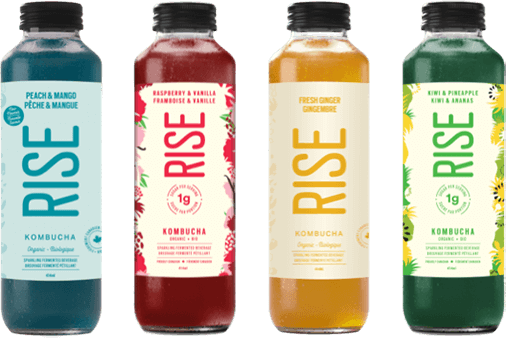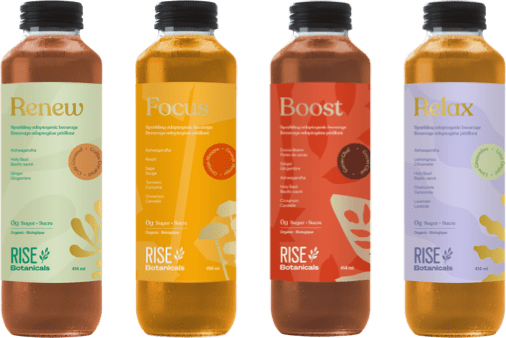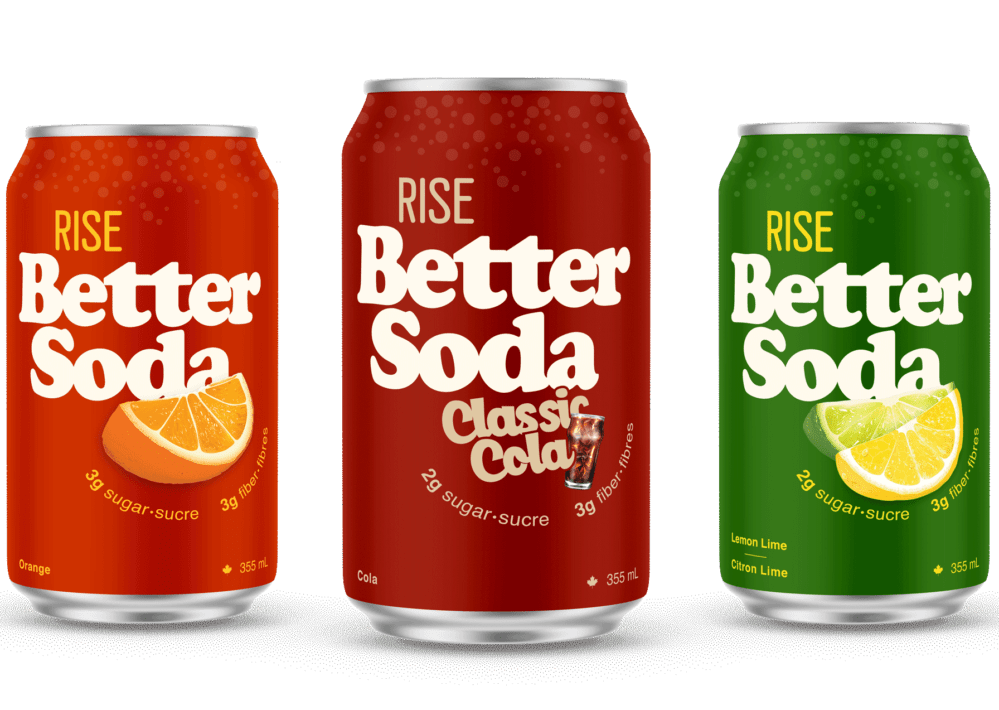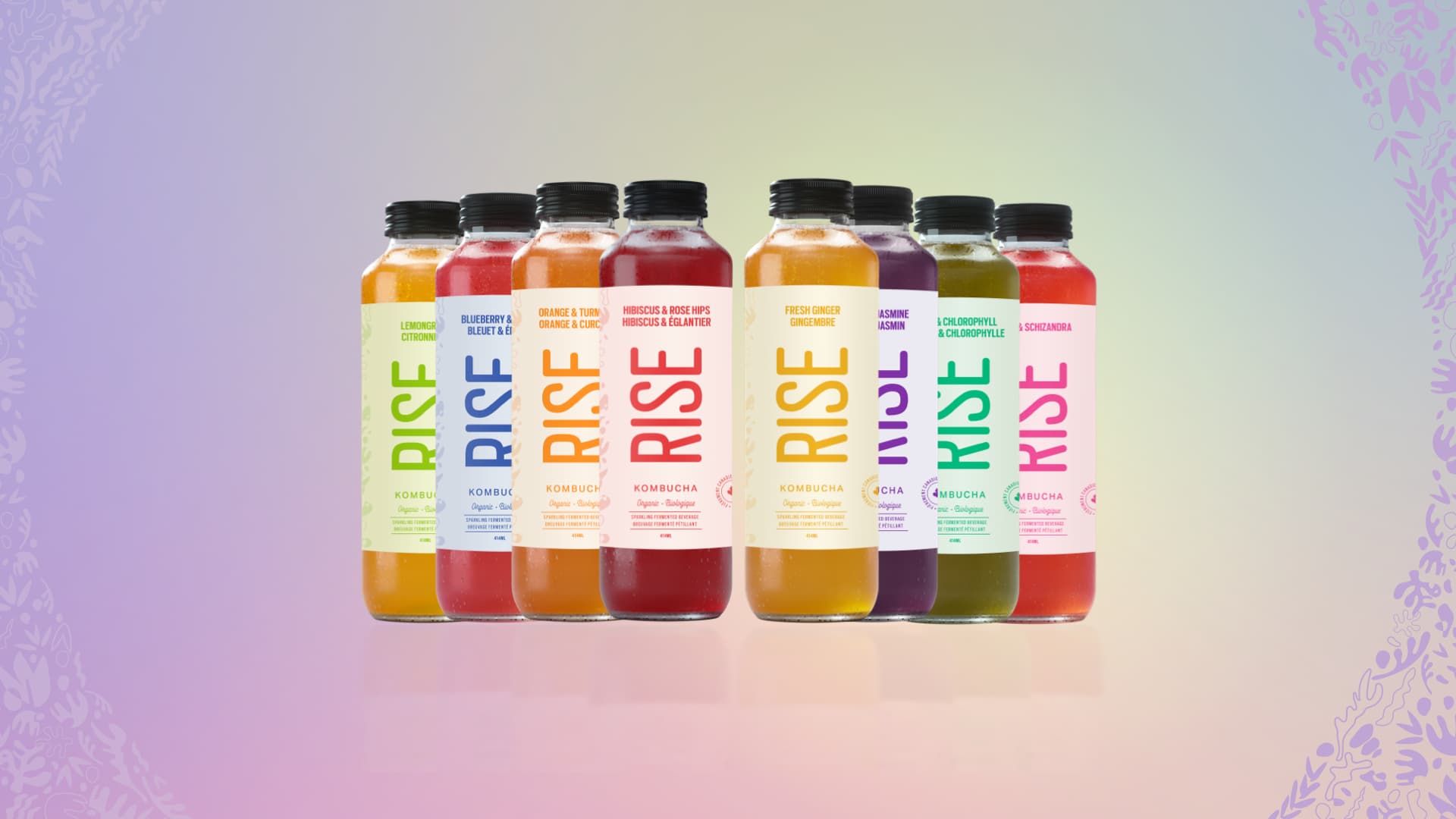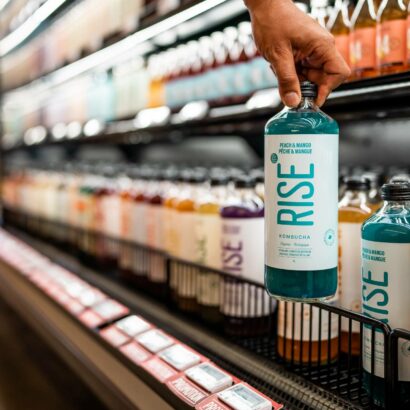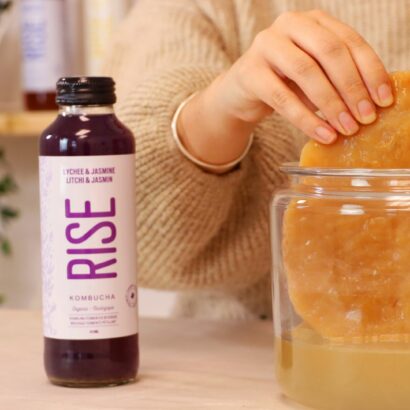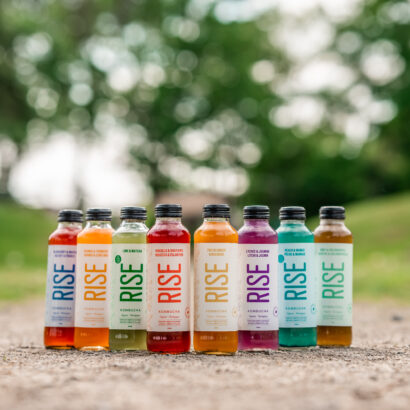Kombucha vs. Kefir: What’s The Difference?
When you’re reaching for a healthy, gut flora potent beverage, kombucha and kefir are both excellent choices. But while both beverages are fermented, meaning they contain living cultures, the similarities end there. Below, we look at the differences between kombucha and kefir, from how each beverage is made to which one is best for you.
What is Kombucha?
Kombucha is fermented, sweetened black or green tea. The beverage is made by fermenting tea using a symbiotic culture of bacteria and yeast, which you may know as a SCOBY. To make kombucha, a SCOBY is introduced to sweetened, brewed tea, usually made with filtered water, and left to ferment. During this time, the sugar in the tea feeds the SCOBY, allowing it to encourage healthy bacterial growth in the tea. The tea is then strained, and is ready to drink as kombucha, but can also be left to ferment for an additional few days.
You can learn more about how kombucha is made by clicking here.
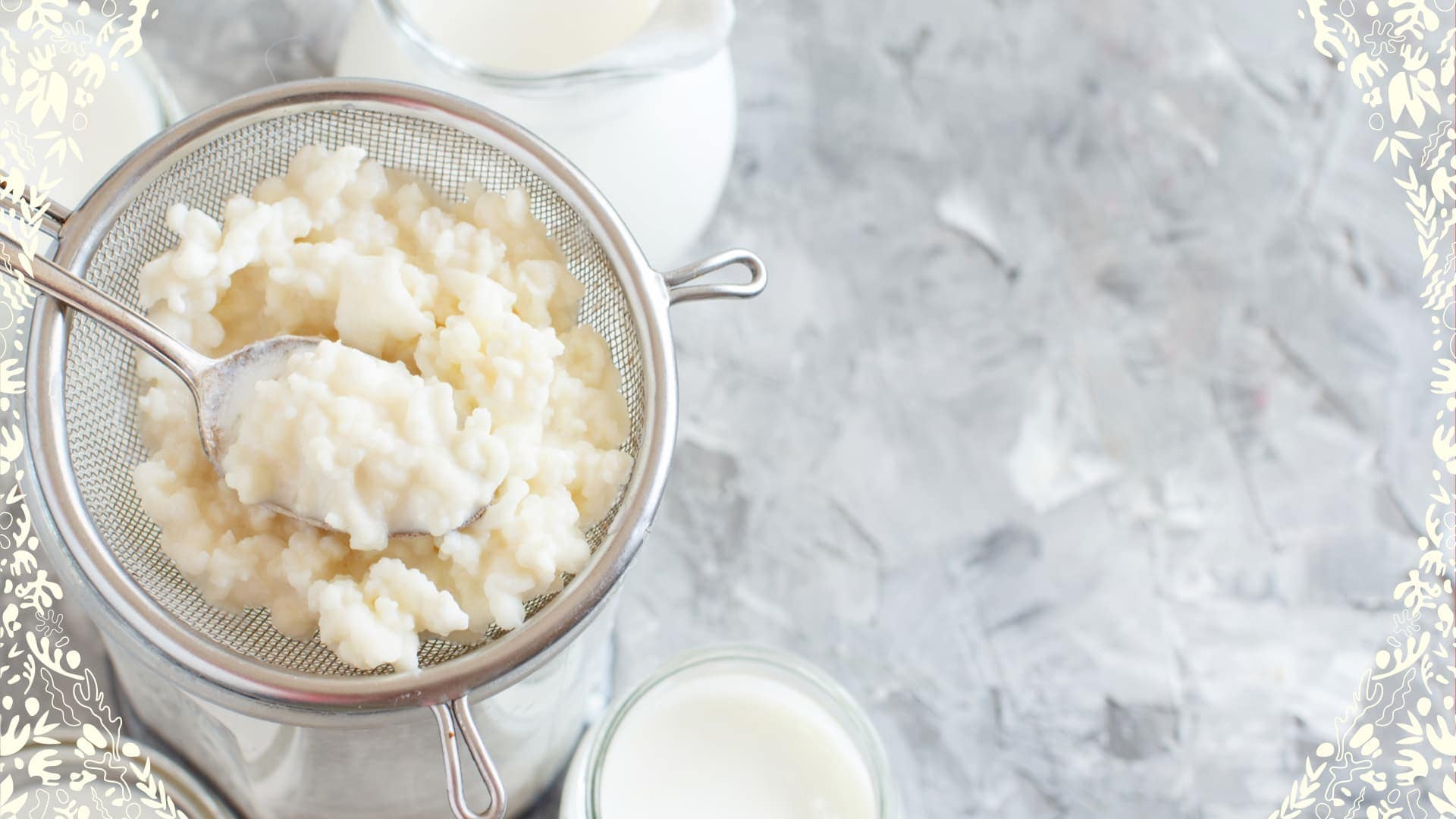
What is Kefir?
Like kombucha, kefir is a fermented beverage. But unlike kombucha, kefir is made of fermented dairy. Kefir is made using kefir grains, which are not a type of cereal grain but are instead a mesophilic symbiotic culture — like the SCOBY, kefir grains contain the “mother” culture that allows healthy bacteria to form in kefir during the fermentation process.
To make kefir, kefir grains are added to milk, then fermented at a mild temperature between 12 and 14 hours. The grains are then strained from the milk, and the resulting beverage — now fortified with healthy bacteria — is ready to drink.
What About Water Kefir?
Water kefir is often prepared as a dairy-free alternative to traditional milk kefir. To make water kefir, a grain called tibicos is used, which contains the microbes necessary for healthy fermentation (like the SCOBY, or the kefir grain). The tibicos grain is added to a sweetened liquid, usually water, and fermented for up to 48 hours. Water kefir recipes often call for the addition of fruit, to add flavour to the resulting fermented beverage.
How The Two Beverages Are Similar
Both kombucha and kefir are produced using similar processes: they are both fermented, with the assistance of a “mother” (a SCOBY in kombucha, kefir grains or tibicos grains in the case of kefir). Both kombucha and kefir contain healthy living cultures as a result of the fermentation process. In both cases, this is mainly in the form of lactic-acid bacteria, such as lactobacillus, which can contribute to good gut health and digestion.
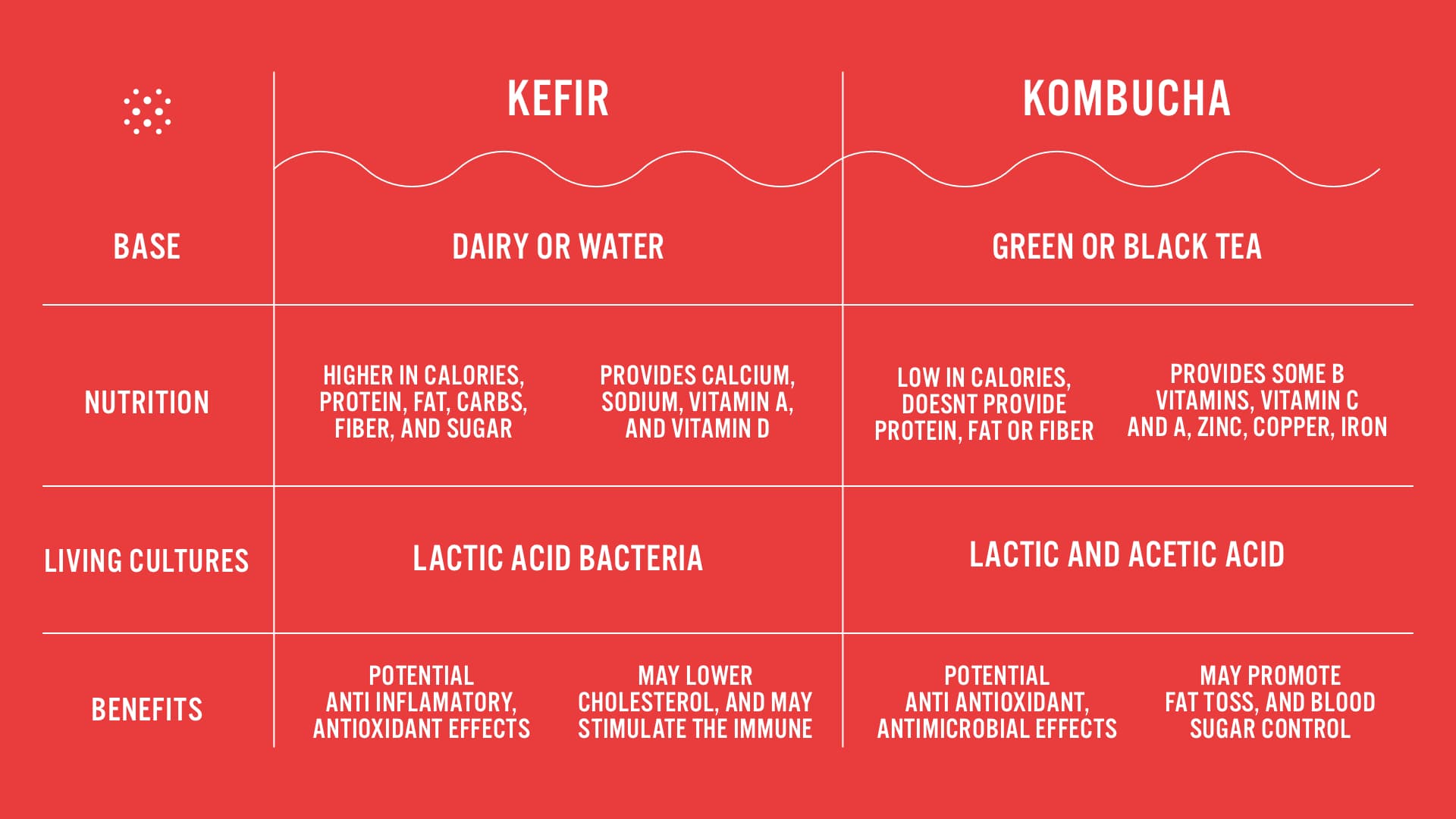
How The Two Beverages Differ
Whereas traditional kefir is produced using dairy ingredients, making it unsuitable for vegans and individuals with dairy sensitivities or allergies, kombucha is simply tea, sugar, SCOBY, and water, making it ideal for almost all dietary regimens. Kefir is most commonly made using pasteurized milk (though it can be made using raw milk, but this is rare), whereas a real kombucha is always raw and completely unpasteurized. While both beverages contain potent living cultures, kombucha also contains polyphenols (antioxidants) and organic acids known to help with digestion and support the immune system.
Because it is made with tea, kombucha does contain some caffeine, but only about 15mg per serving (compared to 30mg in a cup of brewed tea). Kefir contains no caffeine. Kombucha can also be brewed in a variety of delicious flavours, whereas kefir is often unflavoured.
Kombucha or Kefir: Which Is Best For Me?
Both kombucha and kefir contain healthy living cultures and are low in sugar, making them excellent alternatives to soda or high-sugar fruit juices. However, kombucha has a number of potent factors—it’s dairy-free, raw and unpasteurized, and contains antioxidants, among other perks—that kefir simply doesn’t offer. Plus, kombucha comes in a rainbow of amazing flavours, so you can enjoy delicious, healthful live cultures, no matter your taste! Cheers!


